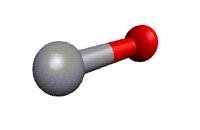|
An isotopic invariant fit CO+ of data was
performed as described in
(1) S. Spezzano, S. Brünken, H. S. P. Müller,
G. Klapper, F. Lewen, K. M. Menten, and S. Schlemmer,
2013, J. Phys. Chem. A 117, 9814.
Transition frequencies for the main isotopolog were
mostly taken from (1) and from
(2) M. Bogey, C. Demuynck, and J. L. Destombes,
1983, J. Chem. Phys. 79, 4704.
Additional data were taken from
(4) K. V. L. N. Sastry, P. Helmlnger, E. Herbst,
and F. C. De Lucia,
1981, Astrophys. J., 250, L91;
and from
(5) F. C. van den Heuvel and A. Dymanus,
1982, Chem. Phys. Lett. 92, 219.
Data for 13CO+ and C18O+
come from (1) and (2) while those for 13C18O+
are entirely from (2).
Also used in the fit were infrared transitions
published by
(6) P. B. Davies and W. J. Rothwell,
1985, J. Chem. Phys. 83, 5450.
Two pairs of transitions (N =
8 – 9 and 5 – 4)
with residuals much larger than the uncertainties
were omitted.
In addition, Y20 and Y30
were taken from
(7) W. Szajna, R. Kepa, and M. Zachwieja,
2004, Eur. Phys. J. D 30, 49.
Predictions beyond 1 THz should be viewed
with caution.
The dipole moment was assumed to agree with that
of the main isotopolog. Its value was published
by
(8) J. K. Thompson, S. Rainville, and D. E. Pritchard,
2004, Nature 430, 58.
|
